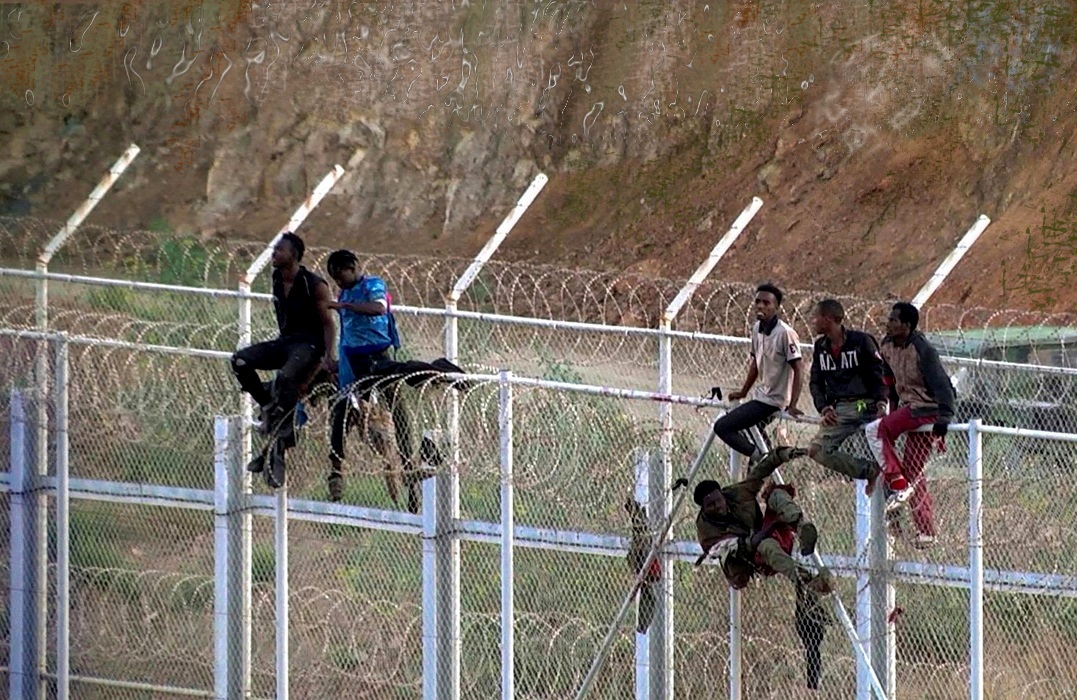Photo by YU-bin, flickr
By Itzia Miravete Veraza
According to a recent joint media investigation, Spain and other countries are fuelling human rights violations against migrants in countries like Mauritania, Morocco and Tunisia.
While States must work together to address the fact of mass migration, there is much debate about how to do so in the most humane way while also respecting migrants’ fundamental human rights. The joint media investigation found that Spain cooperates with countries of origin and transit by providing large sums of money to third countries (such as Morocco and Mauritania) to prevent migrants from crossing the border into Spain.
These agreements that Spain has put in place have made Morocco and Mauritania the gatekeepers of the European side of the border in the region of the Canary Islands, Ceuta and Melilla. Ultimately, they have led to significant human rights violations in the border regions, such as torture, sexual violence, and arbitrary detentions, among others. The continuation of these agreements in the face of these human rights violations implies the tacit acceptance by Spain of violations against migrants and possibly against the NGOs that assist migrants.
These practices have culminated in disasters such as the events in Melilla in June 2022, where at least 37 migrants died and 77 more went missing between the Spanish and Moroccan fences at the Melilla enclave, where they had been trapped and teargassed in a security operation.
The victims, who were mainly refugees and other migrants from sub-Saharan Africa seeking safety and protection, were held in this border zone for extended periods with no sign of resolution. When the desperate migrants attempted to scale the fence, they were met with prolonged and unlawful use of force by Moroccan and Spanish security forces. Amnesty International (AI) detailed how this violence, along with the failure to provide timely medical assistance, contributed to – if not directly caused – the high death toll and masses of injuries.
However, not even a tragedy of such magnitude has managed to change policies to address the causes and effects of people having to emigrate from their countries in search of better living conditions and prevent this from happening again. Nor has this tragedy led to constructive solutions as to how to address the excess of people stuck in border zones for extended periods.
Previously, in the Case of N.D. and N.T. v. Spain, the European Court of Human Rights (ECtHR) held that Spain did not violate the prohibition of collective expulsion or the right to a remedy when it decided to expel several persons who had sought to enter Spain in an unauthorised manner. According to the ECtHR, the expulsion was a “consequence of their own culpable conduct”.
So, on the one hand, externalisation agreements are signed with other countries to prevent the entry of migrants (and potentially prevent them from applying for asylum through the appropriate channels) and, on the other hand, Spain (at least according to the ND and NT case) is authorised to expel people who enter through channels as a “consequence of their own culpable conduct.” While the ECtHR does not go so far as to say that any unauthorised entry would involve “culpable conduct”, it clearly through this decision, imposed significant obstacles to asylum seekers and other migrants to access Europe in search of a more dignified life.
In addition, on the Spanish side of the border, the Spanish government seeks to restrict the support that NGOs and human rights defenders provide to migrants who manage to cross the border. For example, Amnesty International documented how Spanish authorities sought to prevent ships from NGOs to save lives in the Central Mediterranean by misusing administrative law and imposing fines.
The government has also used criminal law and the Law for the protection of public security, better known as “Gag law” to prevent human rights defenders from supporting asylum seekers by exercising their right to protest. Through the Gag Law, the government has criminalised freedom of expression and the right to protest by imposing the duty to notify the authorities of the intention to protest and then wait for authorization.
Moreover, through the research we conducted at the University of Essex, we learned that there was no clear procedure to appeal or remedy an arbitrary administrative sanction regarding this law, as well as the lack of attention to the principles of necessity and proportionality when imposing fines. So even when people are protesting peacefully, they have faced fines for threatening public safety which are broad and loosely defined concepts that allow authorities an overabundance of discretion.
Spain uses its criminal law to produce a chilling effect on those seeking to help or assist migrants. To this day, Article 318 bis of the Spanish criminal code punishes with 3 months to 1 year in prison and a fine of 3 to 12 months salary to “anyone who intentionally assists a person who is not a national of an EU Member State to enter or transit through Spanish territory in a manner that violates the legislation on the entry or transit of foreigners…” However, the facts are not punishable when the intention is to give humanitarian help.
According to the information gathered during our study, this situation leads to extreme cases, where it is necessary to prove the humanitarian nature of an action, leading the NGOs or human rights defenders to use financial resources, time and staff to prove that they are not smuggling, instead of using the limited resources they have to afford assistance to migrants in distress.

